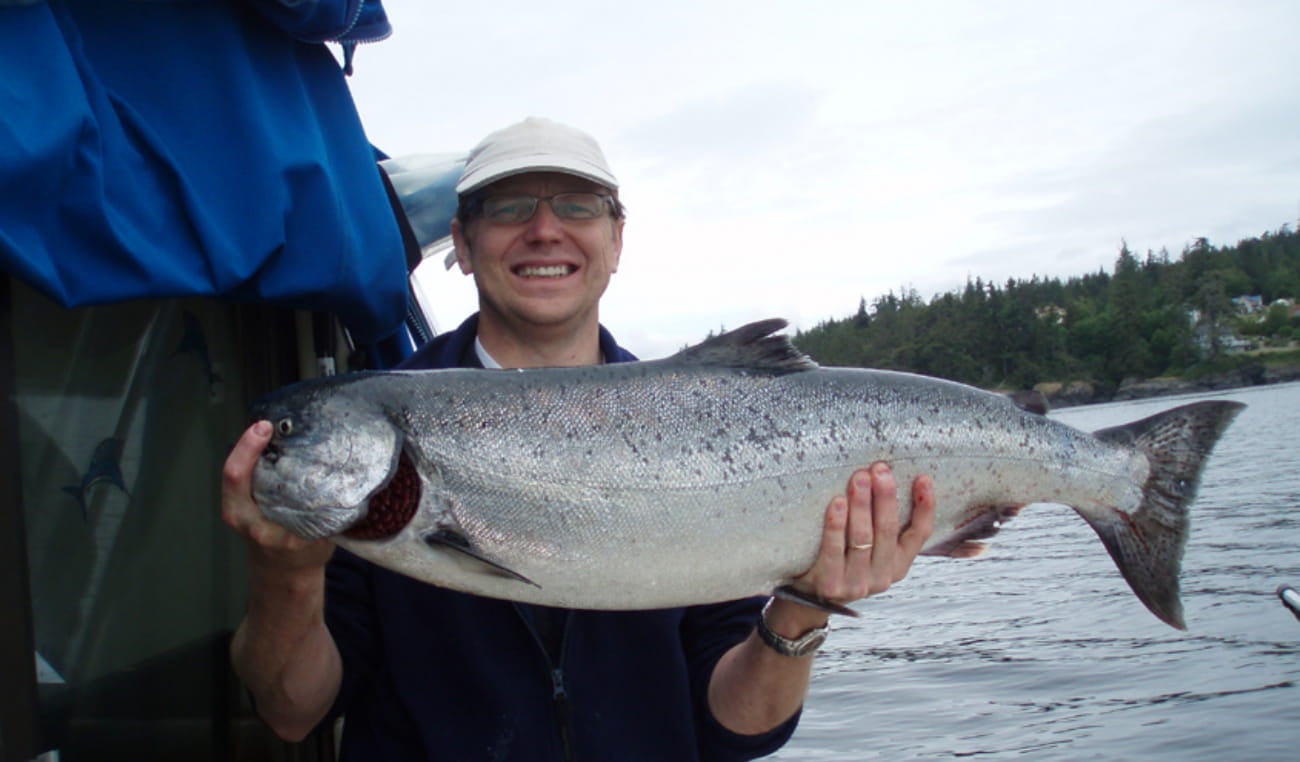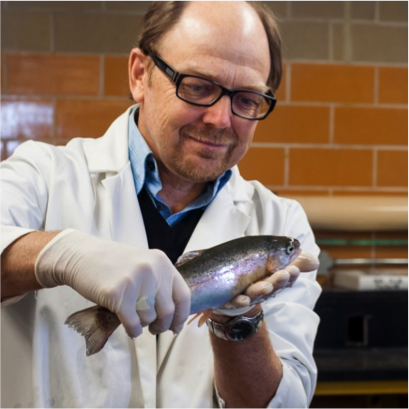
Fish is a great source of protein, vitamins, and minerals, but keeping farmed fish healthy while undertaking sustainable farming practices is a global concern. Current practices in aquaculture rely on antibiotics to combat disease. In Canada, fish farms require a prescription to administer antibiotics, even after farmers chose to vaccinate fish – an expensive option. In third-world countries, antibiotics are often unregulated, inexpensive, and broadcast more consistently as a first-line defence against disease outbreak, and as a preventative measure.
It’s estimated that worldwide use of antibiotics in food production - including aquaculture - was over 131,000 metric tonnes in 2013. That’s not good.
The impact goes beyond the fish pens,” says Professor Brian Dixon. “Excessive use of antibiotics can lead to antibiotic-resistant bacteria, and pathogens that could devastate the industry, the environment, and be passed on to humans through food.
Professor Dixon is the Principal Investigator for a project which looks at overcoming disease in aquaculture by stimulating fishes’ natural immune systems. The $2.1M project is jointly funded by Canada’s International Development Research Centre (IDRC) and the United Kingdom’s Department for International Development (DFID). It is one of eleven projects aimed at increased production, and decreased use of antibiotics in animal food production - particularly in the third world.
Funding allowed Dixon to hire a research tech, project manager, postdoctoral fellow, and graduate student from Peru. The Waterloo team’s work with collaborators in PEI and Cuba is aimed at developing an antimicrobial immunostimulant to help fish populations combat infections. “If successful, it will replace antibiotics,” notes Dixon. “But it will be based on a protein that is part of the fish’s natural immune system.
Antimicrobial proteins are made of one or more polypeptide molecules. The research team has found fish polypeptides with immunostimulant and antimicrobial activities which have the potential to protect the fish against infectious diseases, naturally, without increasing bacterial resistance. Next, the researcher will develop a treatment using the polypeptide.
If only it were simple. Turns out, fish are complicated and mysterious. “I got into fish immunology because there are gaps in our knowledge,” says Dixon. “Part of what I’ve been doing over the last three decades is developing tools to measure fish immune responses. Even now, there are only about 100 labs around the world working on this problem.”

There’s a lot of work to be done before the research team can run field trials in Cuba, but the long-term implications are huge. In Cuba, success means growing the industry enough to meet domestic demand, and possibly export, with low-to-no antibiotic usage. Beyond, the hope is that the technology from this project – and others funded by IDRC – can be shared around the world to ensure secure, sustainable food production for everyone. For Dixon, that’s the real opportunity: “Our papers, our discoveries, they’re important, but more importantly we’re disseminating the knowledge, and training the next generation of problem solvers in Cuba, in Canada, in Peru... I think that’s a better legacy than a particular product.”
—
Brian Dixon is a professor in the Department of Biology, Canada Research Chair in Fish and Environmental Immunology, and Principle Investigator (PI) for the Dixon Research Group. He carries out research in fish immunology, environmental effects on fish immune systems, the role of climate change on fish populations, and improving fish health in aquaculture environments in multiple countries worldwide.